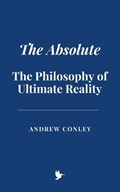This book is a comprehensive exploration of one of philosophy's most profound and enduring concepts: the ultimate reality that transcends yet underlies all existence. Across twenty chapters, this work examines how the Absolute has been conceived, interpreted, and realized in diverse philosophical, religious, mystical, and scientific traditions. From its articulation in ancient metaphysics and mystical traditions to its reinterpretation in modern thought, the Absolute serves as a focal point for humanity's deepest questions about being, knowledge, ethics, and transcendence.
The book begins by tracing the historical roots of the Absolute in Western and Eastern traditions, highlighting the metaphysical visions of Plato, Plotinus, Shankara, and Nagarjuna, as well as the dynamic interplay between the finite and the infinite in Hegel's dialectics and Buddhist notions of emptiness. It then delves into the experiential dimensions of the Absolute, examining mystical practices, spiritual realizations, and the transformative power of direct encounters with ultimate reality.
Key themes include the relationship between the Absolute and time, space, ethics, aesthetics, and society, as well as its role in shaping human understanding and culture. Modern philosophical, scientific, and interdisciplinary perspectives are integrated, illustrating how the Absolute continues to inspire and challenge contemporary thought. The tension between ineffability and articulation, unity and diversity, and transcendence and immanence underscores the complexity and richness of the Absolute.
The final chapters address the lived implications of engaging with the Absolute, emphasizing its capacity to transform individual consciousness and collective life. By exploring the Absolute through a multidisciplinary lens, this work invites readers to contemplate the infinite depths of existence, offering a vision of reality that unites the finite and the boundless in a single, luminous whole.

